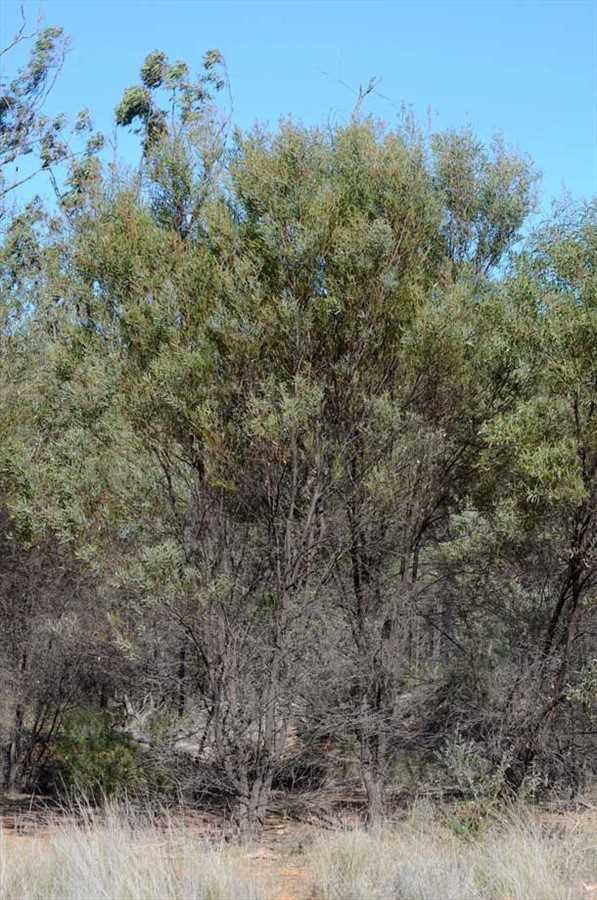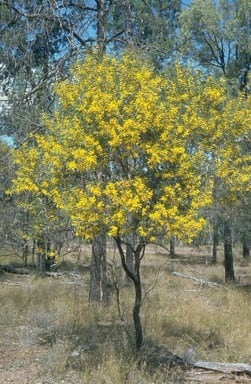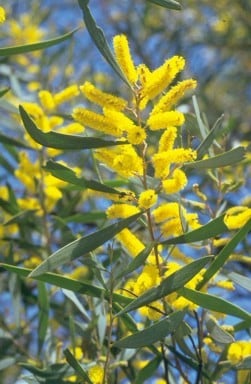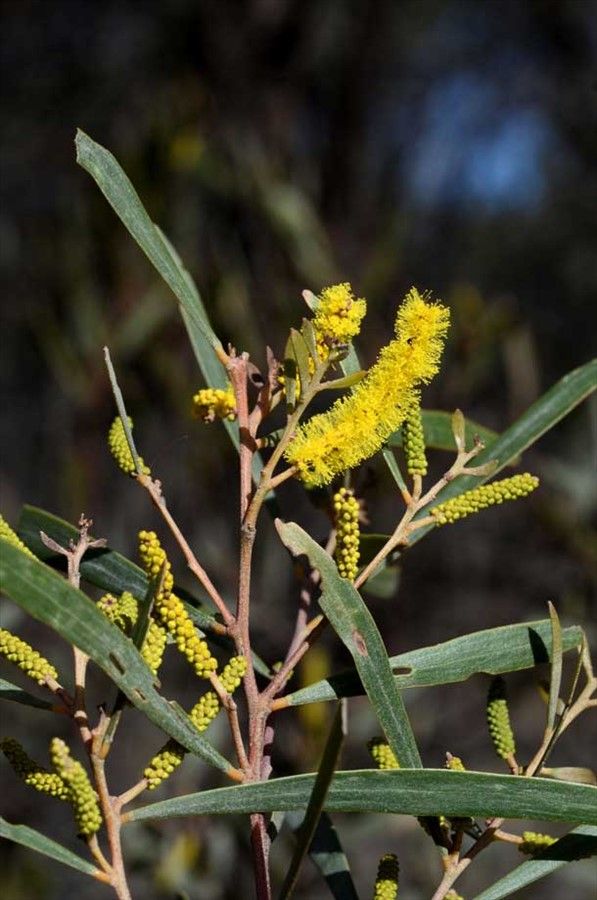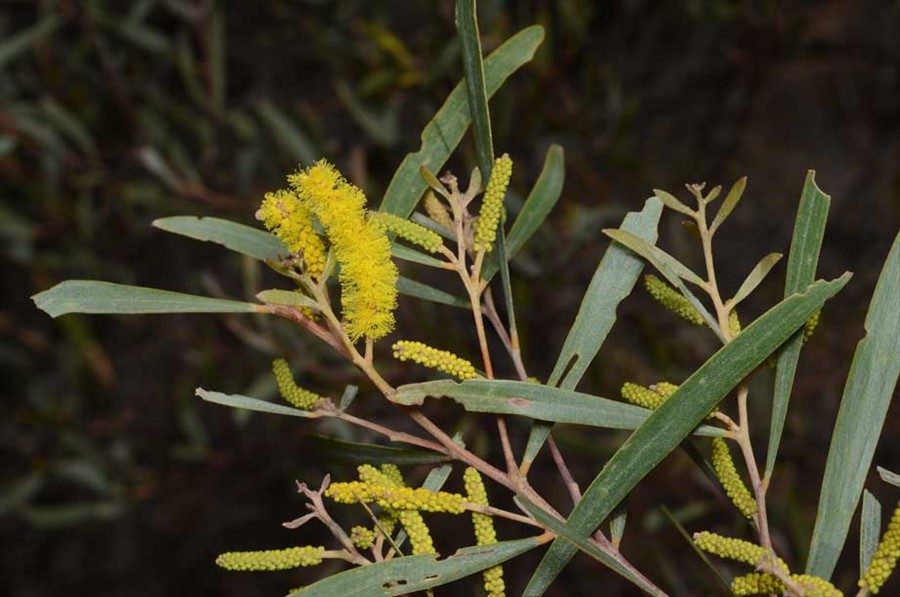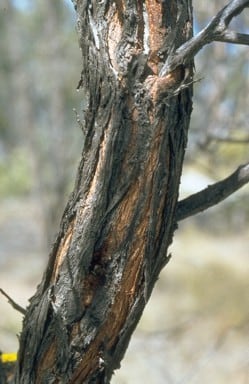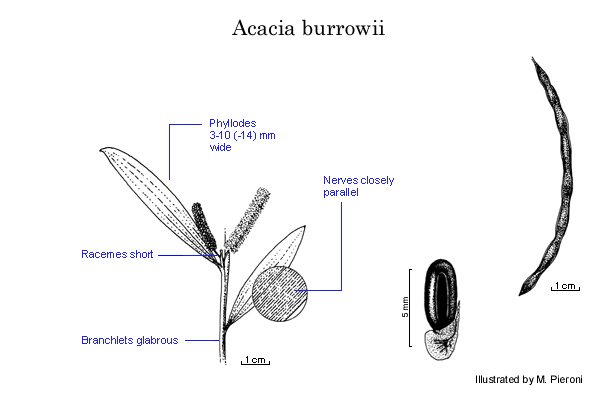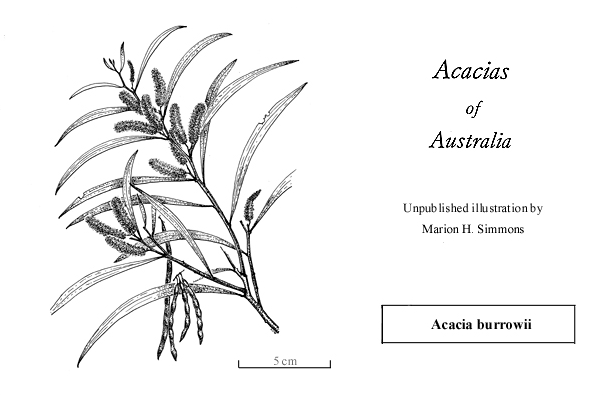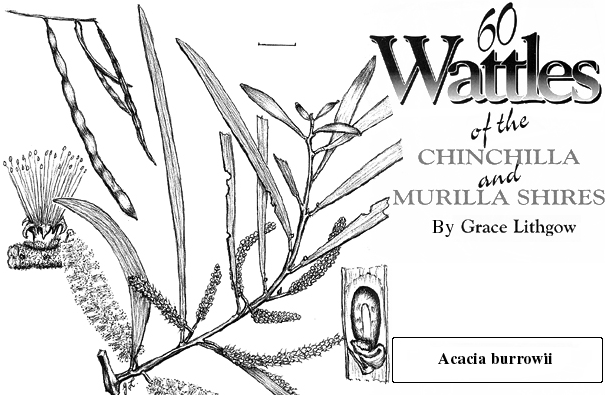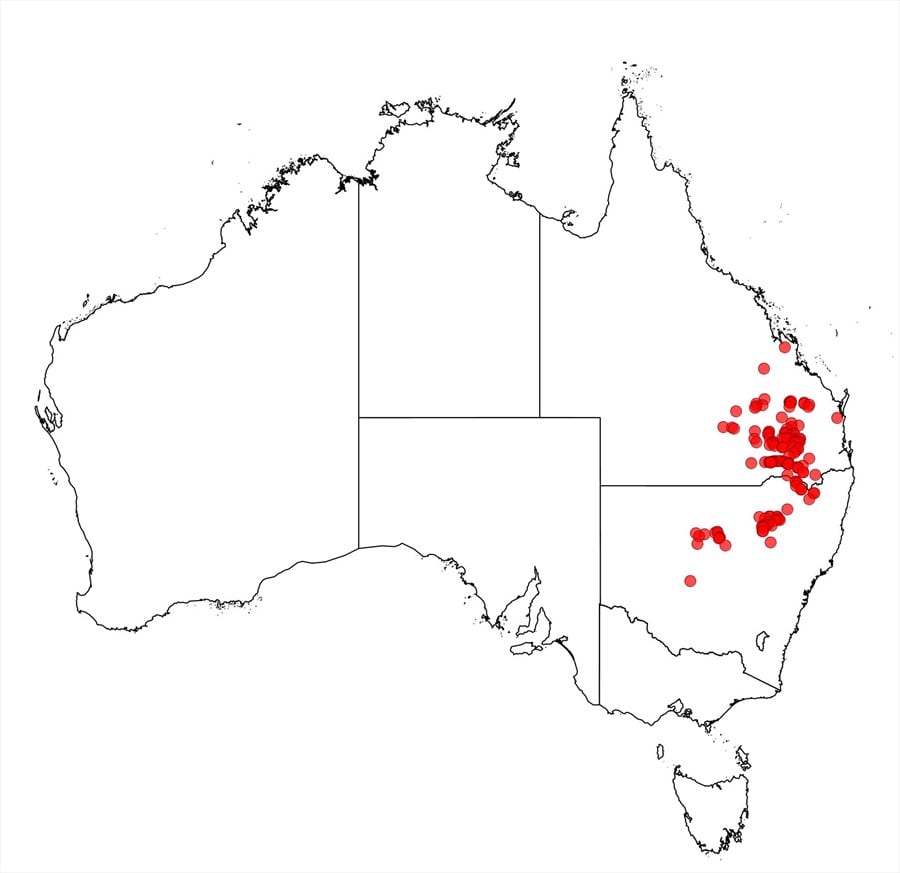Acacia burrowii Maiden
WATTLE
Acacias of Australia
Common Name
Burrow’s Wattle
Family
Fabaceae
Distribution
Occurs on the North Western Plains of N.S.W. from Cobar-Nyngan area N to Yetman (including the Pilliga Scrub), and in south-eastern Qld from the Goodiwindi–Moonie area N to Eidsvold, W of 151ºE.
Description
Tree to 13 m high, single-stemmed. Bark ribbony, grey. Branchlets angular towards apices, red-brown, scurfy, glabrous, ±resinous. Phyllodes narrowly to very narrowly elliptic, flat, straight or slightly curved, (2–) 3–11 cm long, (2–) 4–10 mm wide (juveniles to 14 mm wide and scurfy), coriaceous, with 1–3 slightly prominent main nerves; minor nerves 8–10 per mm, parallel, not anastomosing; gland 1, basal, to 1 mm above pulvinus. Inflorescences racemose; raceme axes 1–5 (–8) mm long, sometime growing out atapex. Spikes 1.5–3 cm long, golden. Flowers 5-merous; calyx 0.5–0.8 mm long, dissected to 1/6–1/4, glabrous or slightly pubescent; corolla 1.5–1.8 mm long, dissected to 1/2, glabrous; ovary scurfy, sometimes pubescent. Pods linear, slightly constricted between seeds, mostly straight or slightly curved, 4–11 cm long, thinly coriaceous to crustaceous, glabrous, resinous. Seeds longitudinal, oblong-elliptic, 3–4.5 mm long, dark brown to black; pleurogram without halo; areole open.
Phenology
Flowers late July–late Oct.
Habitat
Grows in eucalypt woodlands and forests or occasionally in dense scrub, often on stony hillsides in loam or sandy soils.
Specimens
Qld: ½ mile [0.8 km] W of Yuleba, B.G.Briggs 2175 (NSW); Miles–Condamine road, 4 miles [6.4 km] from Miles, V.Hando 275 (NSW); c. 31 miles [50 km] SW of Moonie on Moonie Hwy, M.D.Tindale 681 (BRI, K, L, NSW, US). N.S.W.: Baradine and Narrabri, Dec. 1916, G.Burrows (NSW, PERTH); 1 km W of Girilambone, W.E.Mulham 1085 (NSW).
Notes
Details of ecology, utilisation, etc. of A. burrowii are given in J.W.Turnbull (ed.), Multipurpose Austral. Trees & Shrubs 116 (1986).
The trees are lopped for forage in some districts. It is a member of the A. cheelii group allied to A. blakei in which the phyllodes are larger (5–17 cm long, 4–22 mm wide).
FOA Reference
Data derived from Flora of Australia Volumes 11A (2001), 11B (2001) and 12 (1998), products of ABRS, ©Commonwealth of Australia
Author
Dr M.D.Tindale and Dr P.G.Kodela with the assistance of M.Bedward, S.J.Davies, C.Herscovitch, D.A.Keith and/or D.A.Morrison
Minor edits by B.R.Maslin & J.Rogers
This identification key and fact sheets are available as a mobile application:
URL: https://apps.lucidcentral.org/wattle/
© Copyright 2018. All rights reserved.
